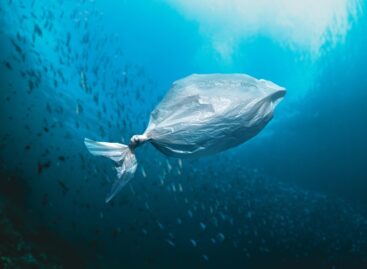Something worrying has been revealed about microplastics
The Water Management Science Committee of the Hungarian Academy of Sciences held its quarterly speaker meeting on April 3, 2024. At this meeting, special attention was paid to the latest research results of microplastics released through municipal wastewater. Within this framework, the employees of the RISK-MP project consortium – Eurofins Analytical Services Hungary Kft., the Hungarian University of Agriculture and Life Sciences, the Aquaculture and Environmental Safety Institute and the University of Pannonia – presented their first results, which were collected during a survey of several domestic wastewater treatment plants.
According to the results of the research, wastewater treatment plants usually remove microplastics with an efficiency of 0.1 – 3%, however, a significant amount of microplastics can enter the environment during the treatment of sewage sludge. Based on the tests, nearly 80 particles can be detected in one gram of sewage sludge, which means more than 13,000 billion particles annually, or more than 1,300 tons of microplastics.
The researchers emphasize that the key to reducing microplastic pollution is at the point of origin of the wastewater, so it is important that the population also participates in this process. To this end, it is recommended not to use cosmetics, wipes and cleaning products containing microplastics, and to use filters that can be installed on washing machines in order to remove microplastic fibers.
Related news
Invisible risk in the chain: microplastics in the food industry
🎧 Hallgasd a cikket: Lejátszás Szünet Folytatás Leállítás Nyelv: Auto…
Read more >The chewing gum industry is at a turning point: microplastic-free alternatives are coming
🎧 Hallgasd a cikket: Lejátszás Szünet Folytatás Leállítás Nyelv: Auto…
Read more >Related news
Nestlé to sell remaining ice-cream assets but commits to Froneri venture
🎧 Hallgasd a cikket: Lejátszás Szünet Folytatás Leállítás Nyelv: Auto…
Read more >








